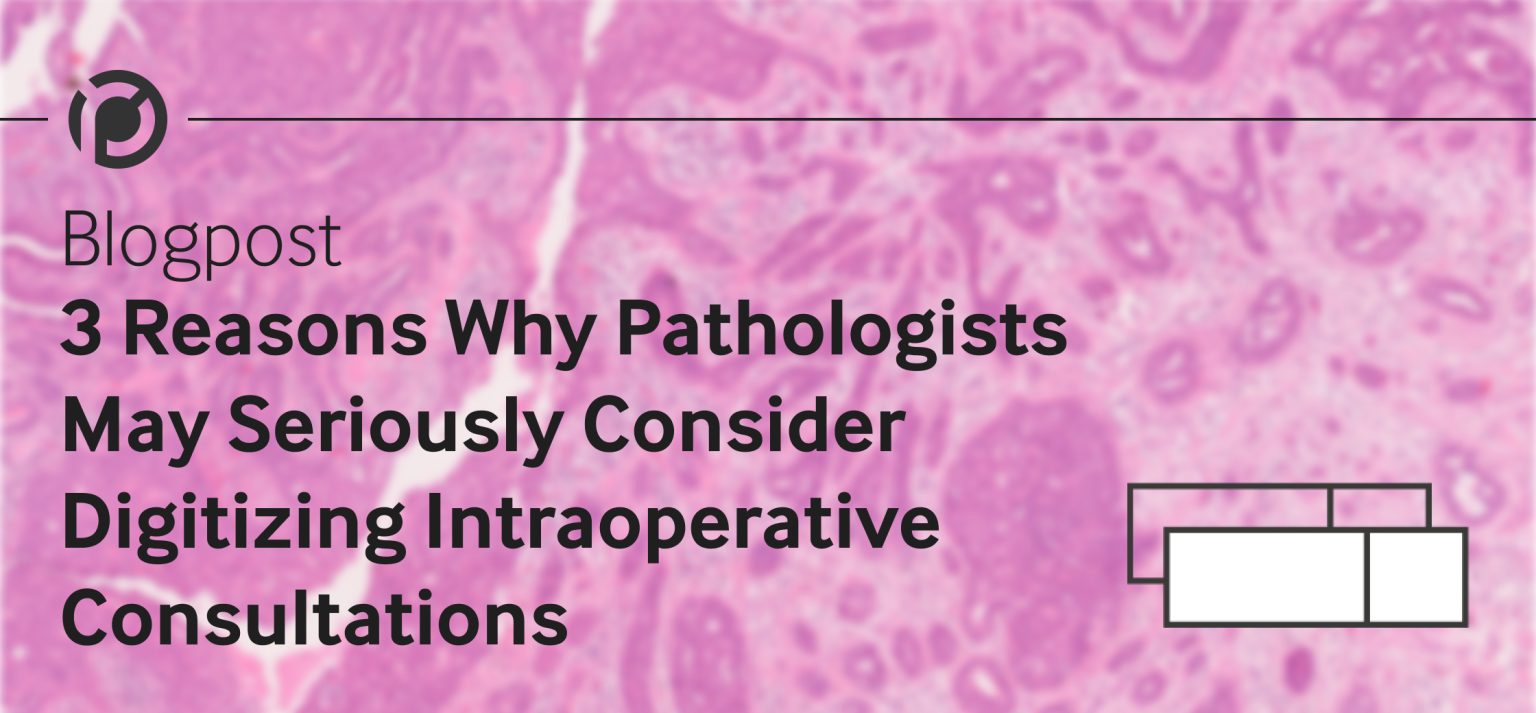To facilitate the readability of this article, we would like to point out to our readers that we use the generic masculine when referring to people. However, we make no distinction between the sexes and refer to all genders in our texts.
Whilst digitization of routine pathology no longer needs debating, it seems as if there isn’t yet a real consensus in the field of intraoperative pathology. I can think of several reasons why: The solutions available so far have not been satisfying, data protection measures have added complexity, and up until more recently, IT infrastructures were not ready to support remote work.
Even amongst pathologists, there isn’t a common perception of how digitization would work.
Early November 2021, my colleague Martin Woywod and I represented PreciPoint at the SGPath / IAP 2021 conference in Interlaken, Switzerland. We had many engaging conversations with pathologists. We were curious to understand how digital technology could provide support in the field of intraoperative pathology.
From our many interactions, I took away 3 compelling reasons why pathologists would now seriously want to look at digital intraoperative pathology.
Reason Nr. 1: Getting a second opinion
Let me start with emphasizing the importance of second opinions in the intraoperative work.
In the case of a frozen section, the analysis of one section should, according to the protocol, be delivered within 20 minutes from the time the specimen reaches the pathology lab. But not all frozen section cases are straight forward. Many of them require very special pathology expertise which may not always be available at the point of care. Unfortunately, the very tight time constraints pathologists are working under usually mean that there is not enough time for a remote second opinion. In a digital pathology set-up, getting a remote second opinion could become a lot easier and faster, breaking geographical boundaries.
Stay Ahead with Insights from Precipoint!
Welcome to our newsletter! Be the first to know about our latest products, services, webinars, and happenings in PreciPoint. Don't miss out on this opportunity to stay informed. Subscribe to our newsletter today!
By clicking “Subscribe”, you agree to our privacy policy.
Reason Nr. 2: Time is of the essence
Due to the general shortage of pathologists, few hospitals can treat surgical specimens internally. Many are expedited to external pathology labs for rapid analysis. Sometimes, pathologists are booked for an entire day during which they wait for the frozen sections to arrive from the surgeries scheduled that day.
These are the situations where digitization would add value. By enabling remote intraoperative pathology consultations, pathologists could be providing their services from the office virtually on-demand, as and when required, which would free up a great deal of their time for other tasks.
Reason Nr. 3: Reaching the many
Today’s challenges also remain in the availability of intraoperative consultations, and I am talking about a global problem. In many parts of the world, there are not enough pathologists. Geographically, pathologist coverage varies greatly from region to region, from city to city. In the areas with no or very few pathologists, intraoperative services simply aren’t available for it would take too much time for the specimen to reach the next pathology lab.
If remote consultations can help scale up intraoperative pathology services, more patients could benefit from them. Patients from the under-covered areas could now have access to services such as intraoperative biopsies or smears.
Realizing the role of intraoperative pathology consultations within the overall surgical patient management was for me the first step in understanding why digitization of the microscopy analysis could be helpful.
The world’s population is rising, so is the demand in oncological care. But pathologists are scarce. To rise up to the challenges of the decades to come, I strongly believe that remote intraoperative consultations is the direction in which surgical pathology needs to start moving.
Would you like to learn more?
Arrange a no-obligation phone call with us if you would like more information about our digital solution for intraoperative consultations.











